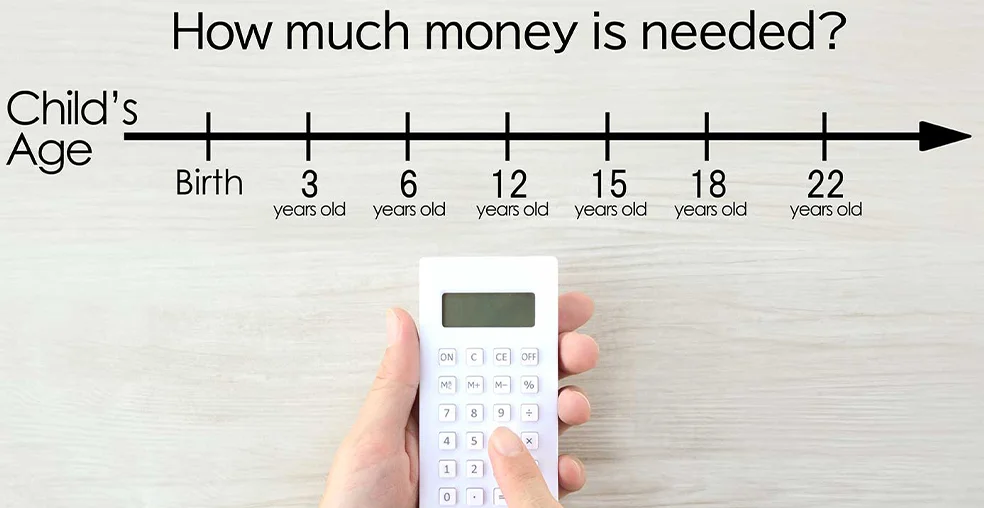Use our interactive Child Support Calculator to determine your child support obligations according to the NC Child Support Guidelines.
Charlotte Child Support Lawyer
The legislature of North Carolina expects both parents to contribute to the upbringing and needs of their children.












Child Support
CALCULATOR
What can CSS do when an NCP does not pay his/her child support?
Once a child support obligation is determined and a court order established, CSS is responsible for enforcing the order. Appropriate enforcement actions are mandatory when the noncustodial parent (NCP) is not complying with the court order.
Some remedies used to enforce a child support order are:
- Court action resulting in jail time.
- Interception of tax refunds (See Tax Intercept FAQs).
- Consumer credit reporting – An NCP’s obligation is reported to consumer credit bureaus that track credit records. Having a child support arrearage debt on a credit record could prevent an NCP from getting a loan or a new credit card.
- Passport denial or revocation – NCPs with cases that have arrearages of more than $2,500 are submitted to the U.S. Secretary of State. The U.S. Secretary of State refuses to issue a passport to these NCPs and could revoke, restrict or limit a passport that was previously issued.
- Liens – A lien is a hold placed on property to ensure that child support payments are made. If NCPs have arrearages equal to three months of their child support obligation or $3,000 (whichever is less), CSS can petition the court to place a lien on the NCP’s property. The NCP can either pay his or her arrearages to have the lien removed, or the property can be sold to satisfy part or all of the debt.
- Driver’s, professional/occupational, or wildlife license revocation – If an NCP is 90 days behind in child support payments, a judge can order revocation of his or her driver’s license. CSS also can refer that NCP’s name to the appropriate licensing board to revoke a professional or occupational license. These licenses cannot be reissued until either the entire debt is paid or a satisfactory payment plan is established. Examples of professional or occupational licenses include: doctor, lawyer, realtor, nurse, teacher, plumber, barber, etc.
- Levying financial institution (bank) accounts – If NCPs have arrearages equal to six months of their child support obligation or $1,000 (whichever is less), CSS can request that a levy be placed on the NCP’s financial institution accounts.
NORTH CAROLINA
CHILD SUPPORT FAQS
What is a paternity test?
What does “establishing paternity” mean and why is it necessary? Establishing paternity identifies the legal father of a child, which ensures certain rights for the child and access to the father’s medical information and benefits. A child support order cannot be established for a child born out of wedlock unless the alleged father acknowledges paternity or is proven to be the father through genetic testing.
What is a genetic test?
Genetic testing is a way of determining the probability that the alleged father is the child’s biological father. The natural mother, alleged father and the child are tested. The most common method uses tissue swabbed from the inside of the cheek. Identification is required and individuals being tested are photographed to verify the donors. Results from the lab can take four to six weeks.
How to establish paternity?
Paternity can be established through: Voluntary acknowledgment process: Both the mother and father complete a form known as an Affidavit of Parentage. This document becomes a legal finding of paternity. If there are any doubts about who is the father of the child, neither party should sign an Affidavit of Parentage. Either parent can request genetic testing to assist in determining the father of the child. Paternity should be established through the courts once genetic testing determines the father.
Civil or criminal paternity action: A court of law establishes the paternity of the child and in most cases a child support order is entered.
What to do if father cannot sign affidavit?
If the father is unable to sign the Affidavit of Parentage in the hospital can this document be completed later? Yes. The Affidavit of Parentage can be signed at alter time. Will the father’s name be placed on the birth certificate? Yes. When the natural mother and biological father sign an Affidavit of Parentage the affidavit is filed with NC Vital Records. The father’s signature on the affidavit gives permission for his name to be entered on the birth certificate for a child born in North Carolina.
What happens after paternity has been established?
Once paternity is established, an order for child support and/or medical support can be obtained either voluntarily or by court order.
How is the amount of child support determined?
The amount of child support to be paid is based upon the NC Child Support Guidelines. These guidelines are used to calculate child support orders based on the ability of parents to pay and the needs of the children. The amount of child support is calculated using the worksheets contained in the guidelines. Use our interactive North Carolina Child Support Calculator link below to determine your child support obligations according to the official NC Child Support Guidelines.
What is the North Carolina Child Support Centralized Collections (NCCSCC) operation?
North Carolina Child Support Centralized Collections (NCCSCC). The NCCSCC operation automatically processes all NC child support payments at a central location in accordance with the requirements of federal and state law.
What is income withholding?
Income (or wage) withholding is an efficient and reliable means of collecting periodic child support obligations. When North Carolina (or any other state) sends a notice of wage withholding for an employee to the employer, federal and state laws require that employer to begin withholding child support from the employee’s wages. Employers deduct the amount specified under the terms of the withholding notice from the employee’s paycheck and forward it to the state within seven business days. Income can also be withheld when the NCP has other sources of income, such as unemployment insurance benefits and workers’ compensation.
What kinds of income can be withheld?
North Carolina income withholding law permits the withholding of most kinds of income. Examples include:
Salaries and wages, Unemployment compensation, Workers’ compensation, Work release, Social Security Administration (SSA) benefits, Veterans benefits and Retirement benefits.
What sources of income are exempt from income withholding?
The following sources of income are exempt: public assistance (work first), supplemental security income (SSI), federal black lung benefits, federal death benefits, payments under the federal torts claims act
federal grants and fellowships, veterans’ educational assistance payments, refunds from incorrect payment or overpayment of federal income tax, travel, transportation, uniform, relocation and other allowances for civilian employees on military posts, reserve officer training corps (ROTC) subsistence allowance, and veterans disability and death benefits.
Is it possible to collect child support from sources other than wages?
Yes. It is possible to collect past due child support from other types of assets such as tax refunds, insurance settlements, unemployment compensation, workers’ compensation benefits, property and bank accounts. Custodial parents should inform their caseworker of any assets that the noncustodial parent has.
Can a non-custodial parent be arrested for failure to pay child support?
Non-custodial parents cannot be arrested solely because child support payments are not paid. The non-custodial parent must be served with a Motion and Order to Show Cause, which allows the case to be heard before a judge. Both parents in the case can be given the opportunity to address the court about the case. After all the testimony and evidence are presented, the judge determines whether the non-custodial parent is in contempt of the order, and if so, what penalty to apply.
Can a non-custodial parent be forced to get a job?
A judge can require the noncustodial parent to seek employment and return to court at a later date. What can be done when a non-custodial parent’s payments are due on the first of the month, but they are always late? You may need to file Motion and Order to Show Cause, which allows the case to be heard before a judge. Both parents in the case can be given the opportunity to address the court about the case. After all the testimony and evidence are presented, the judge determines whether the non-custodial parent is in contempt of the order for late payments, and if so, what penalty to apply.
Our Family Law Attorneys
Learn more about our attorneys and how we can help with your case.
Michael and his team are the best in the business. Professional, respectful, efficient, comforting and experts at what they do. On top of all that, they will invest in you with genuine care and support which gives peace in mind that these are people you can trust.
- Eric W.
Straight to the point. Honest people. It's hard to find these days. Can't thank them enough.
- Paul S.
My daughter hired Maria for a custody suit. Maria is like family! She is open, honest and treats her clients with respect. Her communication with my daughter during the process was impeccable! She treats her clients AND their families fairly and goes beyond expectations. I know my daughter was in…
- Audrey B.
Copyright ©2025 Plumides, Romano & Johnson PC • All rights reserved
This website is intended to provide general information only. Nothing contained in this website is intended to provide legal advice. By using this website you acknowledge and agree that you have not formed an attorney-client relationship with Plumides, Romano & Johnson PC and will not rely on any information contained on this website.












